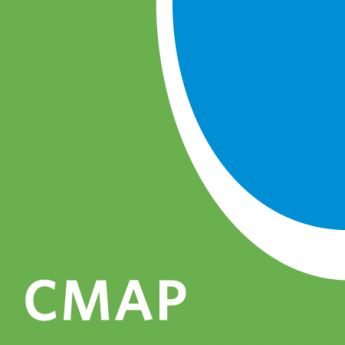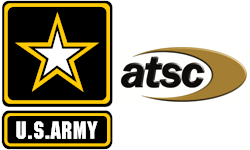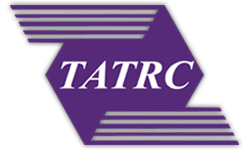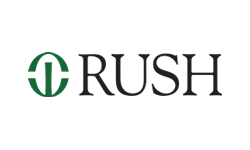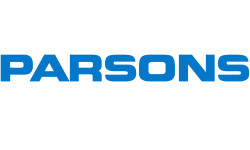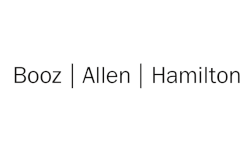Some of the Customized Data-Driven Applications We Have Developed for Our Clients
Flow Kaizen
Developed for IBM Watson Health
The Performance Flow Kaizen suite of tools supports value stream transformation (VST) and continuous improvement initiatives in healthcare and industrial sectors at the operator level. The current state of lean in healthcare is backward-looking, creating ongoing risk and providing feedback too late to recover schedule and patient satisfaction. Current lean methods are employed primarily after the fact rather than in a predictive and proactive manner. The Flow Kaizen suite of tools provides data-driven, real-time visual cues to frontline staff in support of maintaining the pace and flow of operations as informed by the value stream and standard work designs. The Flow Kaizen suite of tools helps deliver operational goals by giving the staff who are directly providing the care visibility to flow disruptions as they occur. This targeted and timely delivery of actionable information is more effective in improving performance than the commonly used retrospective performance reporting and dashboards because front-line staff can react immediately to situations as they occur. The Flow Kaizen tools integrate with any client systems to display real-time progress to plan/takt-time.
Flow Kaizen Tools are founded on two fundamental tenets: the first is to not require data input from clinicians beyond their standard Electronic Health Record (EHR) use and the second is to present data to the users when it can inform meaningful actions.
Taking Stock Online
Developed for the Commission for Environmental Cooperation
Taking Stock Online allows users to explore information on pollution from industrial facilities across North America. This application combines data from facilities across the United States, Mexico, and Canada to provide an interactive customized query tool that generates summary charts and downloadable reports.
FIRESTORM GUI 2.0
Developed for FD Software Enterprises
Fires Synchronization to Optimize Responses in Multi-Domain Operations (FIRESTORM) is an artificial intelligence (AI)-enabled system which provides real-time situational awareness and decision support for front-line commanders. It does this by ingesting data from sensors and other systems, mapping the battlefield, and recommending the best weapon system to engage specific targets.
FIRESTORM GUI 2.0 (the user interface for the FIRESTORM system) provides interactive 2D- and 3D mapping and manipulation of real-time battlefield data. It can be deployed as either a web application or as a desktop application.
GUARDIAN
Developed for Rush University Medical Center
GUARDIAN (Geographic Utilization of Artificial Intelligence in Real-Time for Disease Identification and Alert Notification) is a real-time, automated, infectious agent detection and diagnosis system. GUARDIAN conducts a real-time analysis of multiple pre-diagnostic parameters from records already collected within an emergency department, such as nursing triage chief complaints, physician exam notes, radiology-dictated reports, and laboratory test results. GUARDIAN sends alerts to physicians' pagers notifying them of possible or confirmed cases of preprogrammed illnesses such as anthrax, smallpox, plague, or even influenza the minute they are identified.
RCMPT
Developed for the Department of the Army Sustainable Range Program
Range Complex Master Planning Tool (RCMPT) provides a single point of access for army installations to build their various plans (training, construction, maintenance, etc), for the designated command structure to review and validate those plans, and then for installations and commands to monitor the status of those plans. This single point of access ensures that all plans are uniformly organized and formatted across the Army, thereby improving the consistency, communications, and effectiveness of planning activities.
CHVA
Developed for the Chicago Healthcare System Coalition for Preparedness and Response
The Comprehensive Hazard Vulnerability Analysis Tool helps assess each healthcare facility’s vulnerability to various hazards. The CHVA tool walks the user through a series of questions that help the user to detail the likelihood that a given natural, technological, or anthropogenic event may occur at their facility and what their facility’s specific risks and levels of preparedness are for those events. The results of these surveys not only help individual facilities to better prepare but also guides regional planning commissions in supporting these planning efforts.
RTDAP
Developed for the Chicago Metropolitan Agency for Planning
Regional Transportation Data Archive Platform (RTDAP) collects, processes, and compiles terabytes of data on the Chicago region's transportation system. This vast data warehouse provides the high-quality information and analysis necessary to support both short-term and long-term regional transportation infrastructure planning.
LEO
Developed for Snow City Arts
Snow City Arts is a not-for-profit organization that works with long-term hospitalized children and augments hospital services by addressing a child’s developmental and educational needs through the arts. Pangaea developed the Learning Evaluation and Outcomes (LEO) application to facilitate data management, sharing, and reporting for Snow City Arts artists and staff conducting arts instruction workshops, student assessments, and administration. LEO supports approximately fifty active staff, administrative, and artist users with records pertaining to nearly fifteen thousand individual students at ten different hospital locations. LEO is designed to facilitate both in-person one-to-one instruction at the students’ hospital rooms, group classes with multiple student and instructor participants, as well as remote learning with virtual workshops and remote students and artists. LEO is designed to be HIPPA compliant with respect to data encryption, logging, and access control. LEO is designed to facilitate the latest in academic learning standards and outcome assessment modalities for children and young adults spanning the full range of development from pre-k to college preparatory.
The LEO software is a secure web-based application developed with NancyFx on IIS using C#.NET with a SQL Server database hosted on Amazon EC2.








